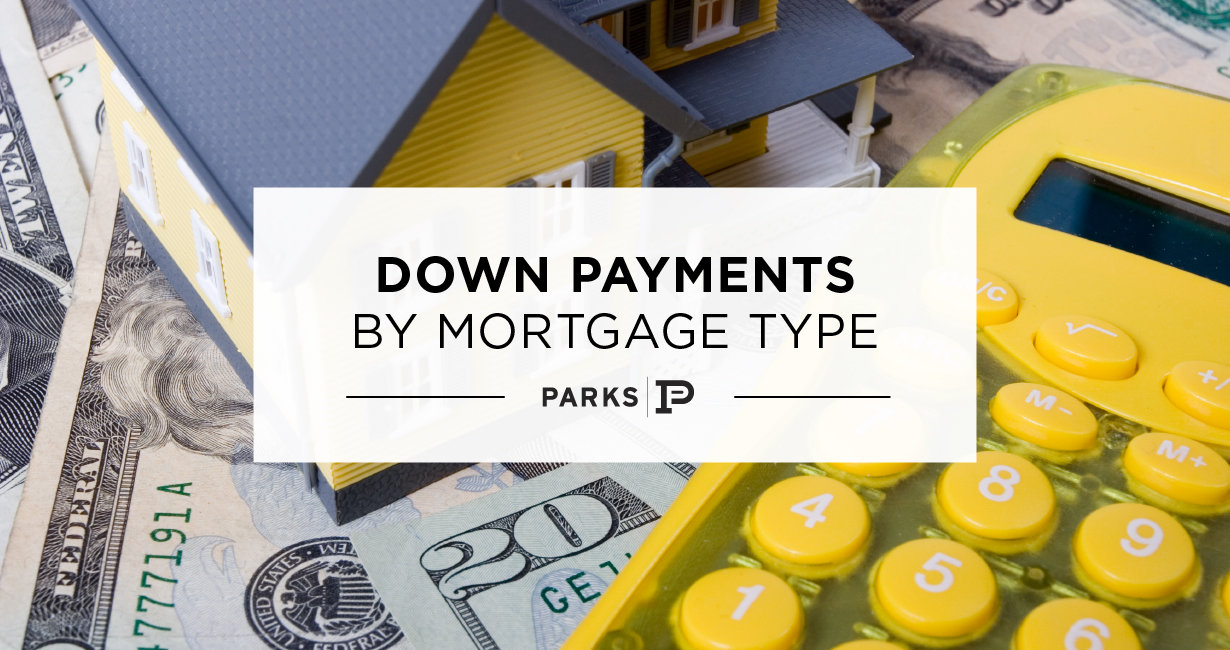A Guide to Down Payments By Mortgage Type
Posted by Jenni Barnett on Monday, August 3rd, 2020 at 11:39am.

Thinking about buying a first home or a second? You have many loan options, and each one varies as far as their down payment requirements. Use this quick guide to get an idea of the amount you'll need to put down on your next purchase.
Is 20% Down Always Necessary to Buy a Home?
The down payment refers to the monies you'll put down during the mortgage closing, and it's often expressed as a percentage of the property price. For example, 20% down on a $200,000 home means paying $40,000 at closing.
20% down can make homeownership feel too out of reach. But take heart, very few loan programs are firm about needing 20% at closing. You can even get a conventional mortgage with as little as 3% down! Read on to learn more.
**Make better decisions by the number! Check out our new mortgage calculators to help you estimate your monthly payments.
Minimum Down Payment By Loan Type
The amount needed as down payment depends on the loan type and whether it's a primary residence, secondary residence, or investment property.
Down Payment For a Primary Residence
A primary residence is a home that you intend to live in the majority of the time.
Conventional Loan - Conventional loan qualifications for primary residences can vary. Some lenders might ask for 5% down, while others only 3%. This difference often has to do with your credit score.
FHA Loan - With an FHA loan, you'll need a down payment of at least 3.5%, given that your credit score is 580 or higher. If it's between 500 and 579, then you'll need at least 10% down.
VA Loan - Great news! You don't need a down payment with a VA loan. There are specific service conditions that determine eligibility, and even your discharge reason plays a role in the required down payment. For full eligibility terms, including those for the spouses of veterans, visit the official VA website.
USDA Loan - Just like a VA loan, a USDA doesn't ask for a down payment. However, the property will need to be in an approved rural or suburban area, and your household also needs to meet income requirements.
Down Payment On a Secondary Residence
A second home is one that you intend to live in aside from your primary residence --like a vacation home or other property that you visit regularly.
Conventional Loan - To qualify for a conventional loan on a second home, you'll need at least 10% down.
FHA Loan - FHA loans are not eligible to buy a second property.
VA Loan - VA loans are not eligible to buy a second property.
USDA Loan - A USDA loan is not eligible to buy a second property.
Down Payment On An Investment Property
Investment property is real estate that you expect to use as income, typically by renting the property or the future resale of it.
Conventional Loan - If the home is an income property, then you'll need a conventional loan. Conventional loan qualifications for investment properties are considered the most strict of all the loan types. You'll likely need a down payment of about 15% to 25% as well as a credit score of 720 or higher.
FHA Loan - FHA loans are not eligible to buy an investment property.
VA Loan - VA loans are not eligible to buy an investment property.
USDA Loan - USDA loans are not eligible to buy an investment property.
Have more questions? Legacy Home Loans is here to help! Contact them today for personalized answers to all your down payment qualifying questions.
Brought to you by Legacy Home Loans. Legacy's goal is to provide home loans to clients while providing them with the lowest interest rates and closing costs possible. Furthermore, they pledge to help borrowers overcome roadblocks that can arise while securing a loan.
To learn more, visit: mylegacylender.com







